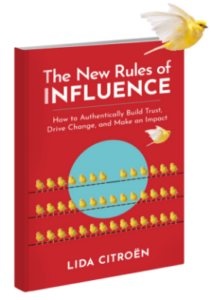In last week’s blog, I walked you through the steps to manage your emotions (fear, anxiety, hope, stress, excitement, and sadness) as you leave college and look for your first job. While you likely worked during school, stayed active in your community as a volunteer, or were an athlete, the step from college to career is not a familiar one.

 Navigating the job search requires strategy. You need to take control of what you have to offer, what you want to do, and who would be interested in hiring someone like you, with your offer, into the position you seek.
Navigating the job search requires strategy. You need to take control of what you have to offer, what you want to do, and who would be interested in hiring someone like you, with your offer, into the position you seek.
-
Define Your Goals
Think about the industry or career you would like to work in. Are you passionate about music, fashion, finance, or technology? It’s okay to start broad (i.e. “technology”). Next, you’ll use the lists you made in Part I to identify the areas of technology you’re most passionate about. Do you like innovation and new technology? Are you passionate about the application of technology in the education market? Do you like online gaming?
Using the technology example, your goal might be to get a position with a growing software development firm in your area. You’ll want to get connected to influencers and decision makers in software design and development, find ways to demonstrate your abilities and aptitude, and highlight your abilities and talents in this area. You might prepare a small website featuring your college courses, extra curricular projects, and commenting on the development firms you believe are cutting edge.
Then, you will need to get more detailed in your plan: Perhaps your first step will be to get lists of key companies you’d like to work for, identifying the right person to contact for an informational interview (see number 3 below), and reading through their website to understand the opportunities and challenges facing that company and their products.
-
Make Yourself Findable
You likely use social media extensively to connect with friends, read news, follow trends (and rumors), and share your opinion about world events. As you transition out of college, your participation online will change, so start preparing your online presence now! Recruiters, employers, and hiring managers scour online profiles to find potential candidates, evaluate them, and find consistency in their values and talents. Online platforms are great to attract the attention of a hiring manager who might be looking for someone just like you!
Be sure your online profiles reflect you in a professional, polished, and appropriate way to the companies you want to attract. Don’t assume any platform (i.e. Facebook) is off limits. Hiring managers are looking at online profiles – make sure yours is consistent with anything you say in an interview or write on your resume.
-
Do Informational Interviews
If you need insight, information, and contacts, informational interviews are ideal for you! These are NOT job interviews. Informational interviews are meetings you initiate with people you may or may not know well, who are in jobs, companies, industries, or initiatives you are interested in understanding better.
In an informational interview, you have the opportunity to hear firsthand about someone’s experience and insights. Then, if you’ve done the meeting correctly, you have a new (and influential) networking contact who likely feels vested in your career success!
-
Ask for Help
Leverage the contacts you make online and professors and mentors you connect with in school to become your information sources and references. Ask them to write recommendations about the work you’ve done in the classroom, on teams, and in clubs and in any part-time or on campus jobs you’ve held. They can also introduce you to key contacts that might be helpful to your job search and endorse you when asked about your talents and abilities. When you create a set of personal advocates you must nurture the relationship with them —send handwritten notes (not emails or text messages) to say thank you, keep in touch, and let them know what you’re up to (successes and frustrations). Keep the confidence and energy high in your communications with them; people want to back a winner, so make sure you communicate that you are a good investment for them to support.
-
Work Your Strategy!
Once you’ve recognized the companies you’d like to work for, identify the hiring managers and recruiters who seek job candidates. Next, look through the company website to find open positions you might qualify for. It’s okay to stretch a little. Send an invitation to connect with the hiring manager on LinkedIn and customize your invitation to highlight your experience, skills, and how you would fit into the company. Don’t be discouraged if they don’t accept. They get a lot of invites… but still do it. Then, send in your application with a custom resume and cover letter. Be sure to look at keywords in the job description, and make sure those keywords are in your resume and cover letter!
The follow up part of a job search is often the most frustrating. You’ll send resumes… and wait. That’s the process. Understand that you’re only looking for ONE job, so be patient. It is fine to send a follow up email inquiring about the status of your application and use that email to reinforce your skills, qualifications, and interest in the position!


